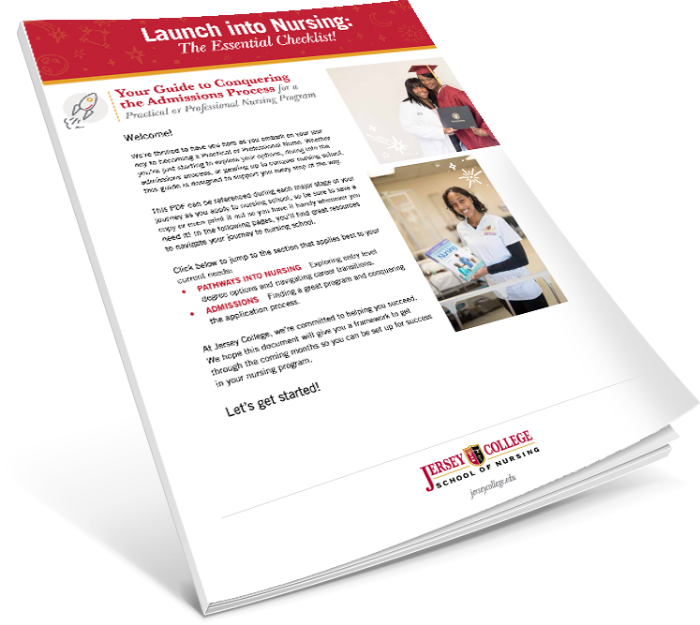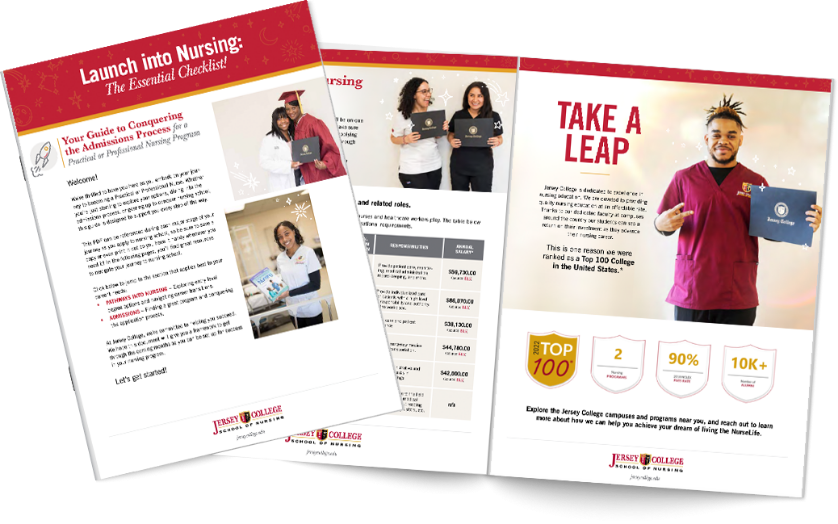
RN vs. NP: Understanding the Difference Between Nurse Practitioners and Registered Nurses
For anyone considering a nursing career, it's important to understand the differences between Nurse Practitioners (NPs) and Registered Nurses (RNs). These two roles have different responsibilities, educational requirements, and career trajectories.
Registered Nurses provide direct patient care and are integral to healthcare teams, while Nurse Practitioners have advanced training that allows them to diagnose conditions, prescribe medications, and manage patient care independently. Both roles contribute significantly to patient outcomes, with RNs focusing on executing care plans and providing support, while NPs emphasize health promotion and preventive care.
Below is a table outlining key differences between Registered Nurses and Nurse Practitioners, including education, scope of practice, and salary, to help you choose the right path for your career:
| Aspect | REgistered nurse (rn) | nurse practitioner (np) |
|---|---|---|
| Education |
Associate's Degree in Nursing (ADN) or Bachelor of Science in Nursing (BSN) |
Master of Science in Nursing (MSN) or Doctor of Nursing Practice (DNP) |
| Scope of Practice |
Provides direct patient care, administers medications, and coordinates care under supervision |
Diagnose conditions, prescribes medications, and manages overall patient care |
| Salary | Average annual salary around $82,750 | Average annual salary around $129,480 |
| Licensure | NCLEX-RN exam | NCLEX-RN plus NP certification exam |
| Autonomy | Works under the supervision of physicians | Often practices independently in many states |
Jersey College does not promise or guarantee employment. Figures cited on this page are for informational purposes only and are no promise or guarantee of any certain wage.
Overview of Job Roles and Responsibilities
RNs and NPs share a commitment to patient care, but their specific duties vary significantly:
| Responsibility | registered nurse (rn) | nurse practitioner (np) |
|---|---|---|
| Patient Care | Direct patient care | Direct and primary patient care |
| Medication Administration | Administers as ordered | Can prescribe and administer |
| Patient Monitoring | Observes and reports | Assesses, diagnoses, and creates treatment plans |
| Diagnostic Tests | Assists and prepares patients | Orders and interprets results |
| Emotional Support | Provides to patients and families | Provides and develops support strategies |
Jersey College does not promise or guarantee employment. Figures cited on this page are for informational purposes only and are no promise or guarantee of any certain wage.
Both RNs and NPs work in diverse healthcare settings, including hospitals, clinics, outpatient centers, home healthcare, and long-term care facilities. However, Nurse Practitioners often have more opportunities in specialty areas and may operate independent practices in certain states.

FREE Essential Guide to Nursing School: Get Accepted, Survive, and Thrive!
Education and Certification Requirements
To become a Registered Nurse, individuals typically need to earn an Associate Degree in Nursing (ADN) or a Bachelor of Science in Nursing (BSN). After completing their degree, they must pass the NCLEX-RN exam to obtain state licensure.
For those aspiring to become Nurse Practitioners, the journey begins with obtaining Registered Nurse licensure. Following this, candidates must earn a Master of Science in Nursing (MSN) or a Doctor of Nursing Practice (DNP) and pass a national certification exam specific to their specialty, such as those offered by the American Association of Nurse Practitioners (AANP) or the American Nurses Credentialing Center (ANCC).
Specializations and Career Advancement Opportunities
Registered Nurses can specialize in areas like pediatrics, emergency care, critical care, and oncology. Career advancement often involves pursuing advanced degrees to become Nurse Practitioners, Nurse Educators, or Nurse Administrators.
Nurse Practitioners have their own specialties, including Family Nurse Practitioner, Psychiatric Mental Health NP, and Women's Health NP. NPs can further expand their expertise by becoming clinical nurse specialists or obtaining additional certifications in specialized fields.
Both RNs and NPs have numerous opportunities to grow their careers and deepen their expertise in specific areas of healthcare, allowing them to provide specialized care and take on leadership roles in their chosen fields.
Scope of Practice and Autonomy
Registered Nurses are essential to patient care, focusing on hands-on tasks such as administering medications, monitoring vital signs, and providing emotional support. They typically operate under the supervision of physicians or Nurse Practitioners, with their level of independence varying based on experience and the specific healthcare setting.
In contrast, Nurse Practitioners, have a broader scope of practice due to their advanced training. NPs can diagnose medical conditions, interpret diagnostic tests, and develop treatment plans tailored to individual patient needs. In many states, they also have prescriptive authority, allowing them to write prescriptions independently.
The autonomy granted to NPs varies significantly across states. Some states provide full practice authority, allowing NPs to operate without physician oversight. This is particularly beneficial in underserved areas, allowing NPs to establish independent practices and address local healthcare shortages effectively.

Sign up to get new articles in your inbox and stay updated on our nursing programs.
Salary and Job Outlook
Nurse practitioners, in the United States earn a median annual salary of $129,480, with salaries ranging from around $99,000 for entry-level positions to over $160,000 for experienced NPs in high-paying specialties and locations. Geographic location significantly impacts NP salaries, with California offering the highest average annual wage at $161,5406. Specialization also plays a role, with neonatal and psychiatric-mental health NPs earning higher salaries compared to other specialties.
Nurse Practitioners earn substantially more than registered nurses, who have an average annual salary of $82,7505. This increased earning potential reflects NPs' advanced education, greater responsibilities, and expanded scope of practice.
The demand for NPs is growing rapidly, with a projected growth rate of 46% between 2022 to 2032. This surge is driven by the aging population, increased healthcare needs, and the industry's focus on cost-effective, primary, and preventive care. NPs are particularly sought after in underserved and rural areas, where they often serve as primary care providers, helping to address healthcare shortages.
Choosing the Right Path for You
Deciding between a career as an RN vs NP involves evaluating the financial and time investments of each path. Registered Nurses typically require 2-4 years of education, while Nurse Practitioners need additional advanced study and clinical experience. Although RN programs are generally less costly, the higher earning potential of NPs can balance out the investment over time.
Both careers offer rewarding opportunities to impact patient lives, with RNs focusing on direct care and NPs enjoying greater autonomy. It's important to note that becoming an RN is a necessary step on the path to becoming an NP. Even if your ultimate goal is to become an NP, starting with a strong RN program provides a solid foundation for your nursing career. This approach allows you to gain valuable experience and insight into patient care before advancing to an NP role.
Consider your strengths, interests, and desired work-life balance to determine which path aligns best with your goals. Whether you choose to remain an RN or pursue further education to become an NP, both roles offer meaningful contributions to healthcare, with a lot of opportunities for growth and specialization.
Take the Next Steps in Your Nursing Journey
Explore the benefits of Jersey College’s nursing programs, where you can take the next steps in your nursing journey. With state-of-the-art simulation labs, experienced faculty dedicated to your success, diverse clinical experiences to broaden your skills, and comprehensive support services, Jersey College is committed to helping you thrive. There’s still time to join the next cohort, so don’t miss out on this opportunity!
Request Information
Are you ready to apply for nursing school?
Request your free admissions kit today by filling out the form below or by visiting our Admissions page.
Get a Free Admissions Kit
For more information about the nursing programs available at your nearest Jersey College campus, including start dates for upcoming cohorts, visit our nursing programs page. We encourage prospective students to apply ahead of these dates to ensure they complete the application process before enrolling.
FAQs
Are there opportunities for NPs to work in non-traditional healthcare settings?
NPs have diverse career opportunities beyond traditional clinical settings, including telemedicine, corporate healthcare, research institutions, and public health organizations.
What education is required to become an RN and an NP?
To become an RN, you typically need an Associate Degree in Nursing (ADN) or a Bachelor of Science in Nursing (BSN) and must pass the NCLEX-RN exam. NPs must first be licensed as RNs and then earn a Master of Science in Nursing (MSN) or Doctor of Nursing Practice (DNP), followed by passing a national certification exam.
What is the main difference between a Registered Nurse (RN) and a Nurse Practitioner (NP)?
The primary difference lies in their scope of practice. RNs provide direct patient care under supervision, while NPs have advanced training that allows them to diagnose conditions, prescribe medications, and manage overall patient care independently.
What are the salary differences between RNs and NPs?
Registered Nurses earn an average annual salary of around $82,750, while Nurse Practitioners earn significantly more, with an average annual salary of approximately $129,480, reflecting their advanced education and responsibilities.
How long does it take to become a Nurse Practitioner?
The journey typically involves first becoming an RN (2-4 years of initial education), then completing a Master's or Doctoral program in nursing (2-4 additional years), making the total time to become an NP approximately 4-8 years.
Related Blogs

FREE Essential Guide to Nursing School: Get Accepted, Survive, and Thrive!
